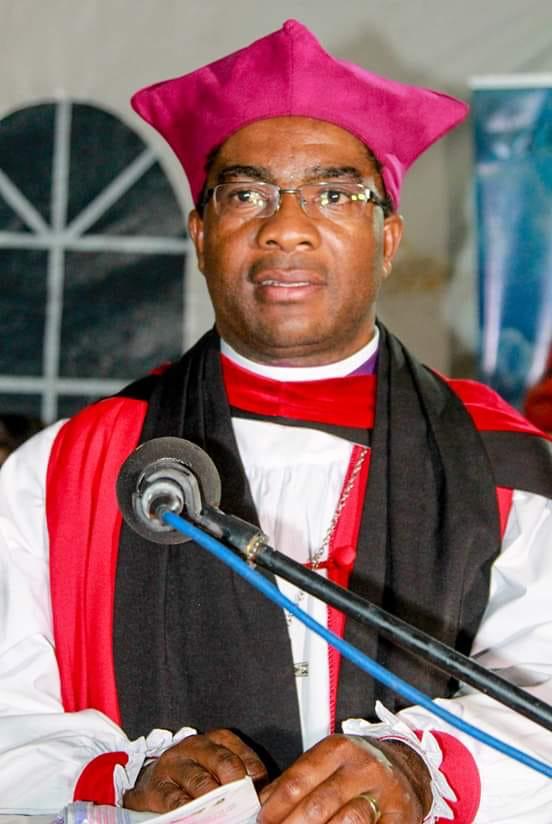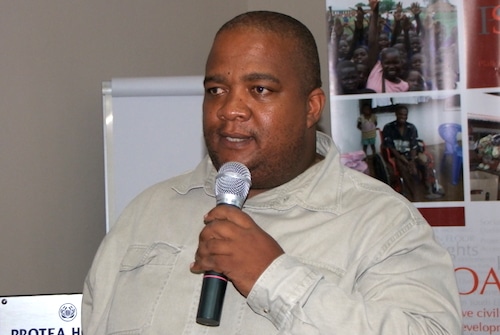Religious leaders say they want the next president of Namibia to be someone who has zero tolerance for corruption.
The secretary general of the Council of Churches in Namibia, James Fredericks, says politicians vying for the Presidency in the upcoming elections must practise honesty and fairness.
He said this yesterday at a two-day capacity strengthening workshop for church leaders and civil society organisations in Namibia on socio-economic justice issues.
“Corruption erodes public trust and hinders progress. Transparency, accountability and a commitment to strengthening the Anti-Corruption Commission is vital.
“The leader must lead by example, demonstrating honesty and fairness in all dealings,” he said.
Fredericks said leaders should prioritise equitable growth, ensuring that the benefits of economic progress reach all Namibians, especially the marginalised.

“They must foster job creation, support local industries and promote sustainable development,” he said.
“My advice to the candidates is to listen closely to the people, especially those who feel unheard or left out. Leadership is not just about governing, it is about serving.
“We don’t want arrogant leaders, but leaders filled with love and compassion for the Namibian nation,” Fredericks said.
Meanwhile, Anglican bishop Lucas Katenda said those who wish to occupy State House need to understand and follow the relevant provisions of the Constitution.
“Most particularly, someone who is ready to defend and even lay their life down for the defence of fundamental human rights and freedoms as per Chapter III of the Constitution.
“Most importantly, the one who will cause the government and state machinery to actively promote and maintain the welfare of all the Namibian people,” he said.
In addition, Katenda expects a leader who demonstrates a strong will, steadfastness and who is a servant leader.
“We do not need only a team player and coach, but also someone with practical experience in politics and leadership,” he said.
Katenda said church leaders must be neutral.
“… so that we can cater for everybody in this time of peace and not repeat the troubles of the past,” he said.
Katenda said some political parties are specifically dedicated to Christian values.
“I am not so sure those parts are very serious about the developmental agenda,” he said.
The bishop said leading a country is about more than Christian values.
“It is about development. It’s about industry. It is about economic emancipation,” he said.
He said the church is not called to fight for liberation or independence.

Uhuru Dempers, the head of the Social and Economic Justice department of the Council of Churches in Namibia (CCN), said political parties’ manifestos thus far do not make the grade on socio-economic issues.
These issues, he said, are low wages, the abuse of power, violence, crime, growing inequality and the loss of social cohesion.
He said the issues came as a result of the political system failing to provide for citizens’ basic needs.
Dempers said while Namibia is experiencing harsh economic difficulties, the country is endowed with many natural resources.
“What happened to the many natural resources we have? Will the situation change with the discovery of oil, gas and green hydrogen?” he asked.
He said he has read a number of political party election manifestos, but has little hope that there would be good governance after the upcoming elections.
Dempers said in recent years, people have been asking why the church is quiet while people experiencing socio-economic challenges.
Therefore, the church, through the CCN, has come up with a number of initiatives and interventions aimed at addressing some of these challenges.
Namibian theologian and former diplomat Andre September at the workshop said it is true that the government has failed to deliver.
He said despite Namibia being classified as a middle-income country, citizens are still subjected to various socio-economic hardships.
“We were supposed to be well off and celebrate this.
There ought to be no poverty in Namibia,” September said.
He said resources are in the hands of a few greedy people.
“Greed destroys systems, greed destroys community and people,” he said.
Stay informed with The Namibian – your source for credible journalism. Get in-depth reporting and opinions for
only N$85 a month. Invest in journalism, invest in democracy –
Subscribe Now!







